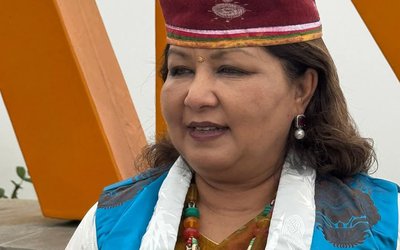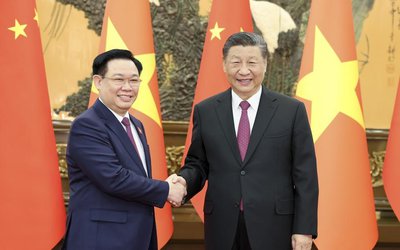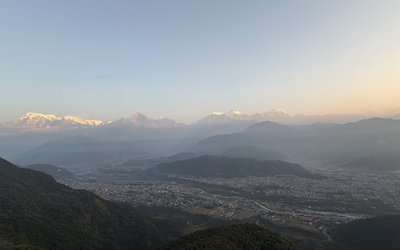
If politics moves on its natural course, seven provinces will see full-fledged provincial governments and the center will have a new government soon. Opening the process of formation of the first provincial government, the legislature of province-3 has already got the chief minister and two other ministers.
CPN-UML legislature committee has already announced Sher Dhan Rai as its leader. He will take the seat of chief minister of province-1. In province-2, Federal Socialist Forum’s Mohamad Lalbabu Raut, in province-4 Prithvi Subba Gurung, in province-5 Shankar Pokharel, in province 6 Mahendra Bahadur Shahi and in province 7 Trilochan Bhatta are set to run the show in the new federal setup.
Similarly, the provincial assemblies have also started to elect the speaker and deputy speaker of Provincial Legislatures. Out of seven provinces, CPN-UML and Maoist Center will share chief ministers, speakers and deputy speakers in six provinces. Rashtriya Janta Dal and Federal Socialist Forum share chief minister and speaker in province 2.
Having shown badly in elections, Nepali Congress will be the main opposition in all seven provinces. As the provincial level power sharing has gone smoothly, the power sharing in the center is also likely to go smoothly.
As CPN-UML leader and Maoist Center leader are in a compromising mood, they are likely to divide the main positions of President, Vice-President, prime minister, speaker of the House of Representatives and chairman of National Assembly on consent.
As the Election Commission has already handed over the election results of the National Assembly and is likely to hand over the election results of House of Representatives, the president may invite the leader of the party, securing the majority in the elections, to come forward to form the government.
Since there are many ambiguous provisions in the constitutions regarding the rights and duties of the three tiers of government, Nepal is likely to face a series of constitutional deadlocks.
Whatever the circumstances on the horizon, Nepal has already marched ahead with the experiment on the federal form of government. After the final round of negotiation and agreement, it is almost certain now that Nepal will have the new government soon under the leadership of CPN-UML leader K.P. Sharma Oli. So far as the merger of CPN-UML and Maoist Center is concerned, it still requires some time to come about.
Although Maoist Center leader Pushpa Kamal Dahal has said the announcement of the merger will come shortly, the political events may show up otherwise, indicating merger will be unlikely before the formation of the government.
“The merger will take place before the formation of the new government. We have already agreed on the modality of merger with CPN-UML leadership,” said Prachanda, addressing the meeting commemorating the Day of People’s War. However, UML leaders avoided attending the formal program.
CPN-UML leaders have already offered co-chairmanship of unified Communist Party for both Oli and Prachanda, with power sharing in two and half years. “Since Maoist-Center leaders also agreed on this compromise modality, we will announce the merger next week,” said CPN-UML leader Bam Dev Gautam.
Despite the claim of the leaders, the merger is unlikely before the completion of the election of all major positions, including prime minister, president, vice president, speaker and deputy speaker and chairman and vice chairman of National Assembly.
President Bhandari Appoints K.P. Sharma Oli As New Prime Minister
After receiving the support from left alliance, president Bidhyadevi Bhandari appointed KP Sharma Oli as a Prime Minister of Nepal. Earlier today, incumbent prime minister Deuba tenderd his resignation.
According to President Bhandari’s Chief Personal Secretary Bhesh Raj Adhikari, the left alliance has supported Oli’s bid for premiership through correspondence to President Bhandari at the President’s official residence.
Office of the President sources said that the CPN-UML chair is likely to be sworn in as the Prime Minister today. Oli’s claim to premiership and the corresponding process is currently being contemplated.
On being asked for verification, President’ Chief Secretary Adhikari said, “there is a possibility for the same to materialise.”
With the support from the CPN-Maoist Centre to the bid for premiership, Oli would now become prime minister under Article 76 (2) of the constitution.
Article 76 (2) states that if no party gets clear majority, the president shall appoint as prime minister the member of the House of Representatives who has majority support of two or more parties represented in the House of Representatives.
UML Standing Committee on Wednesday decided to name Oli as the party’s prime ministerial candidate after Oli held one-on-one meeting with CPN-MC Chair Dahal in the morning, following which Oli and Dahal briefed their party colleagues about their discussion.
The left alliance comprising the UML and the CPN-MC has a comfortable majority in the 275-member House of Representatives, with UML having 121 seats and the CPN-MC 53.
The Party Unification Coordination Committee formed by the CPN-UML and CPN-Maoist Centre agreed on Wednesday that UML would have the prime minister, president and deputy speaker, while CPN-MC would have the vice-president and the speaker.
This is KP Sharma Oli’s second innings as the Prime Minister of Nepal. Oli will take over as the 41st Prime Minister of Nepal.
- Continuous Earthquake Tremors In Jajarkot
- Apr 15, 2025
- Foreign Minister Dr. Deuba Praises Valuable Initiative Of Organizing Retreat For Kathmandu-based Diplomats
- Apr 15, 2025
- We will increase investment in tourism and hydropower: FNCCI President Dhakal
- Apr 15, 2025
- Xi calls on China, Vietnam to oppose 'bullying' amid trade friction with US
- Apr 15, 2025
- Weather Forecast: Brief Rain With Thunder Storms In Kathmandu And Pokhara
- Apr 15, 2025















